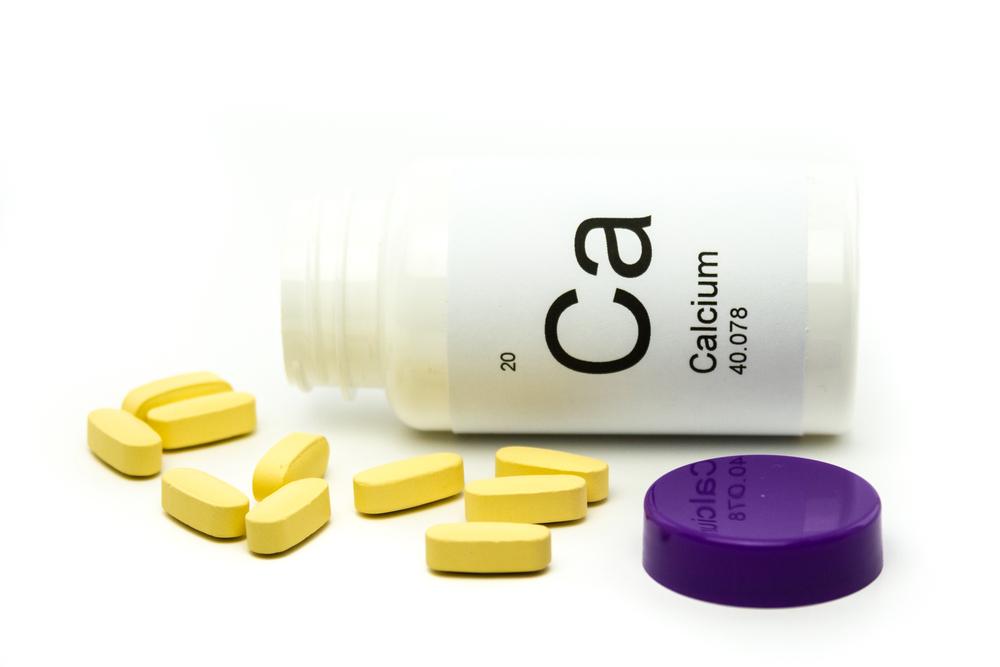The Ultimate Guide to Different Types of Calcium Supplements for Better Bone Health
This comprehensive guide explores the various types of calcium supplements, including calcium carbonate, citrate, lactate, and natural sources. It emphasizes their absorption rates, benefits, and ideal consumption strategies to help you choose the best option for bone health and overall wellness. Learn about bioavailability, safety considerations, and how to optimize calcium intake effectively through supplements and diet for better health outcomes.

In-Depth Exploration of Various Calcium Supplement Types and Their Benefits
Calcium plays a pivotal role in maintaining overall health, especially in supporting bone density, muscular function, nerve transmission, and cardiovascular health. As calcium deficiency issues become more prevalent worldwide, many individuals seek effective supplementation options to meet their daily requirements. However, choosing the right calcium supplement can be challenging due to the numerous formulations available in the market. Understanding the key differences, absorption efficiencies, and ideal consumption timing of each type is crucial to optimizing health benefits. This comprehensive guide aims to assist you in making an informed decision about calcium supplementation tailored to your needs.
When selecting a calcium supplement, the primary factors to consider include the form of calcium used, the total and elemental calcium content, absorption rates, compatibility with your digestive health, and whether the supplement should be taken with meals or on an empty stomach. Each form has its unique advantages, limitations, and ideal application scenarios. Below, we explore the most common and effective types of calcium supplements to guide your choice towards better bone health and overall wellness.
1. Calcium Carbonate
Calcium carbonate is among the most popular and cost-efficient calcium supplements. Made from natural sources like marine shells or limestone, it boasts a high concentration of elemental calcium—approximately 40%. Its affordability and widespread availability make it a top choice for many consumers. However, calcium carbonate's absorption is heavily dependent on stomach acid, which means it works best when taken with meals. Consuming it on an empty stomach may lead to reduced absorption, rendering the supplement less effective. Despite this, calcium carbonate remains one of the most recommended options for individuals looking for high elemental calcium content in a single dose.
2. Calcium Citrate
Calcium citrate stands out for its excellent bioavailability and gentle impact on the digestive system. It contains about 21% elemental calcium and can be taken with or without food, making it an extremely versatile supplement. Calcium citrate is particularly suitable for older adults or individuals with low stomach acid, conditions that may impair calcium absorption. Its ability to be tolerated well by sensitive stomachs and its lower risk of causing constipation make it a preferred choice for many seniors. Furthermore, calcium citrate has been associated with a reduced risk of kidney stones and is beneficial for overall bone health.
3. Calcium Lactate
Natural calcium lactate is commonly found in dairy products and baking ingredients. It provides moderate absorption potential and has a lower elemental calcium concentration—around 13%. As such, consuming a larger quantity of tablets might be necessary to meet daily calcium requirements. Its moderate bioavailability across varying pH levels in the digestive tract makes it a suitable option for those seeking a natural source of calcium or preferring to get it from food extracts or minimal supplements.
4. Natural Calcium Sources
Some supplements derive calcium directly from natural sources like oyster shells, bone meal, or dolomite. These sources offer a natural composition of calcium combined with trace minerals beneficial for health. However, the use of natural sources raises concerns regarding contamination risks, including heavy metals or toxins, if quality control is insufficient. Therefore, it's crucial to select high-quality, certified supplements from reputable manufacturers to ensure safety and efficacy.
5. Calcium Phosphate
Calcium phosphate is primarily obtained from milk and dairy products. It is less likely to cause gastrointestinal discomfort such as constipation, which can sometimes occur with other calcium salts. While it contains a smaller percentage of elemental calcium—around 23%—its gentle nature makes it a good option for individuals with sensitive digestion. Calcium phosphate also plays a vital role in promoting healthy bone mineralization and dental health.
6. Calcium Gluconate
This form provides a lower amount of calcium per dose—roughly 9%. Due to its lower elemental calcium content, multiple doses per day are often necessary to fulfill daily intake recommendations. Calcium gluconate is usually used to treat acute calcium deficiency conditions or to manage calcium levels in specific health scenarios. Its cost can be higher relative to the amount of calcium provided, but it remains an option for those needing supplemental calcium in particular medical contexts.
7. Calcium Citrate Malate
This water-soluble form combines calcium citrate and malate, providing good bioavailability at a competitive price point. Its solubility allows for flexible dosing, and it is easily absorbed regardless of stomach acidity. Calcium citrate malate is especially effective for individuals who require reliable calcium absorption without gastrointestinal discomfort and is frequently recommended for bone health management.
8. MCHC Calcium (Microcrystalline Hydroxyapatite)
MCHC calcium, derived from animal bones, contains microcrystalline hydroxyapatite—a form closely resembling human bone mineral. It contains not only calcium but also phosphorus and other trace minerals that support bone density and dental integrity. It is particularly suitable for older adults, especially those with diets low in meat and phosphorus, as it helps replenish essential minerals for skeletal strength and dental health.
9. Calcium Orotate
Calcium orotate is a bioavailable form that facilitates cellular functions by providing calcium directly to cell membranes and mitochondria. It plays a critical role in DNA and RNA synthesis, essential for cell repair and replication. This form is often favored for its ability to penetrate cell structures efficiently, promoting cellular health and metabolic functions.
10. Calcium Ascorbate
This combined form includes calcium and vitamin C. While on its own calcium ascorbate has limited absorption, its effectiveness increases when taken with meals. It offers antioxidant properties from vitamin C, supporting immune health and aiding calcium absorption. It can be a good option for those seeking to combine multiple health benefits in their supplement routine.
In conclusion, the selection of a calcium supplement should be based on individual health needs, digestive health, budget considerations, and convenience. Consulting with healthcare providers can also help determine the most suitable form and dosage to ensure optimal bone health and prevent deficiencies. Remember that no supplement is a replacement for a balanced diet rich in calcium-rich foods like dairy products, leafy greens, and fortified foods. Combining proper supplementation with a nutritious lifestyle is the best approach to maintaining strong bones and overall health for years to come.





